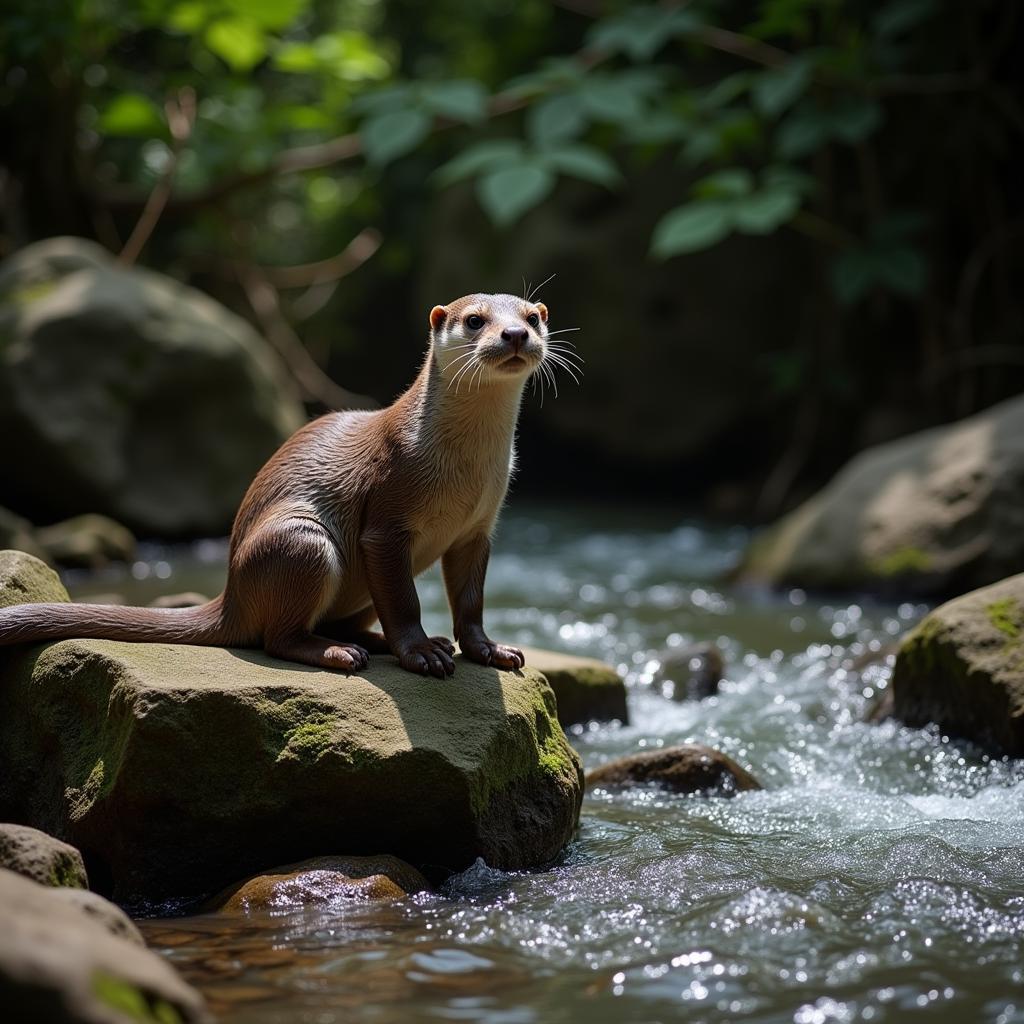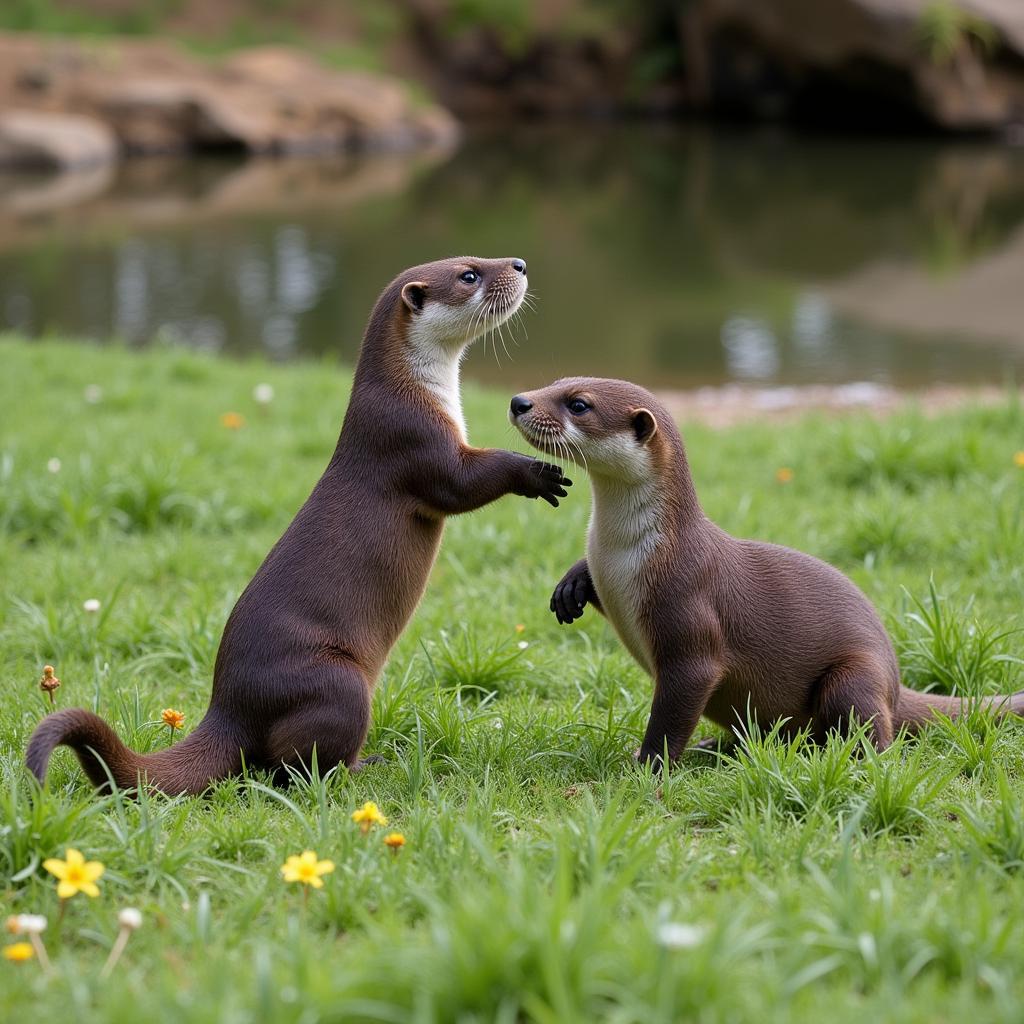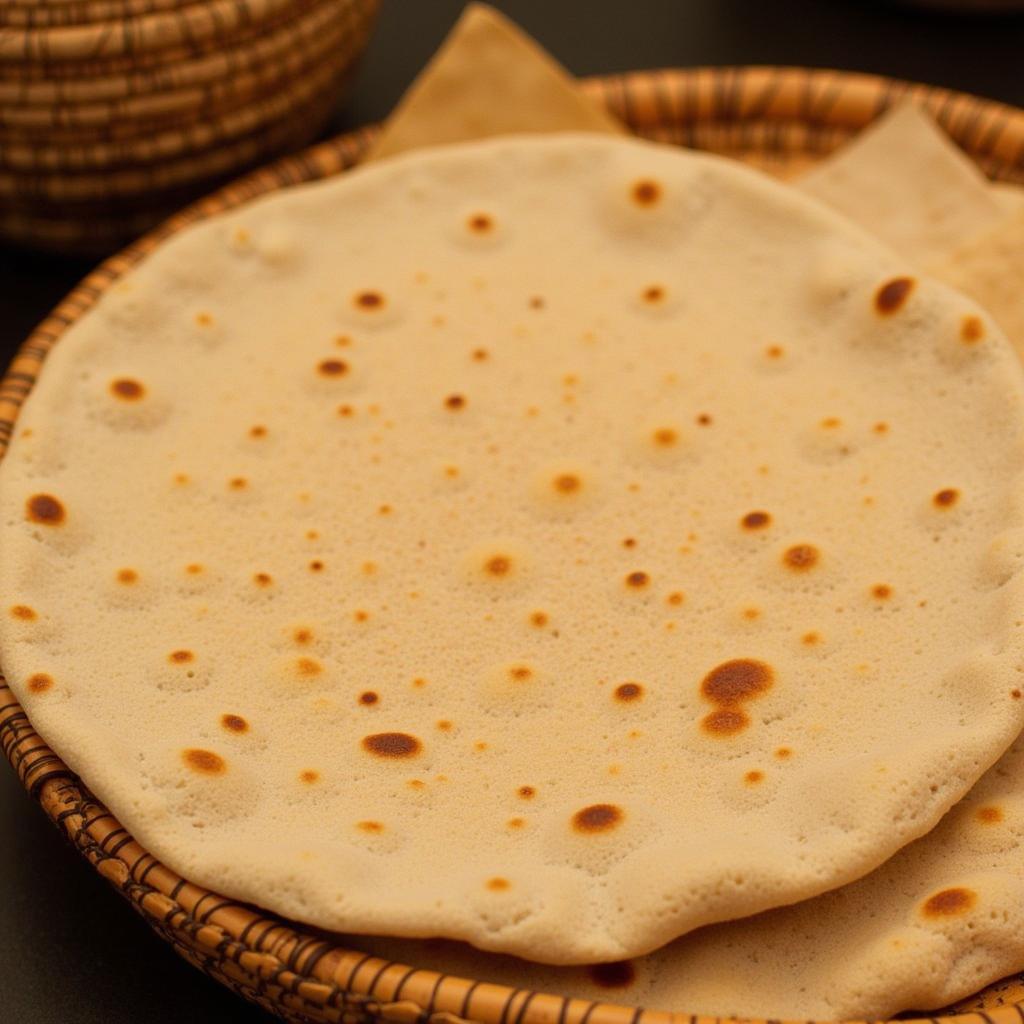African Clawless Otter Pet: A Unique Companion or a Conservation Concern?
The allure of owning an exotic pet is undeniable, and the African clawless otter, with its playful antics and endearing appearance, might seem like a dream come true for animal lovers. However, before succumbing to the idea of an “African Clawless Otter Pet,” it’s crucial to delve into the realities and responsibilities associated with having this unique creature as a companion.
Understanding the African Clawless Otter
The African clawless otter, scientifically known as Aonyx capensis, is a fascinating semi-aquatic mammal native to sub-Saharan Africa. Unlike their Asian counterparts, they possess only rudimentary claws, relying more on their nimble fingers to forage for food. These social animals live in family groups, communicating through a complex system of whistles, chirps, and twitters.
 African Clawless Otter in Natural Habitat
African Clawless Otter in Natural Habitat
Can You Keep an African Clawless Otter as a Pet?
The short answer is: it’s complicated. While owning an African clawless otter might seem appealing, the reality is far more complex. Here’s why:
- Legal Restrictions: Many countries have strict regulations or outright bans on keeping exotic animals like African clawless otters as pets. This is primarily to protect both the animals and the public.
- Specialized Care: These otters require a highly specialized environment that replicates their natural habitat. This includes a spacious enclosure with access to clean water for swimming, ample space for digging and playing, and a carefully controlled diet.
- Social Needs: African clawless otters are highly social animals. In the wild, they live in family groups, and depriving them of this social interaction can lead to behavioral issues and health problems.
 African Clawless Otters Engaging in Play
African Clawless Otters Engaging in Play
The Ethical Considerations
Beyond the practical challenges, there are significant ethical considerations surrounding the keeping of African clawless otters as pets:
- Conservation Status: While not currently endangered, African clawless otter populations are facing threats due to habitat loss, pollution, and the illegal pet trade. Taking these animals from the wild further exacerbates these threats.
- Animal Welfare: Otters are intelligent, active creatures with complex needs that are challenging to meet in a captive setting. Confining them to an artificial environment can be detrimental to their physical and psychological well-being.
Alternatives to Owning an African Clawless Otter
For those captivated by African clawless otters, there are more responsible ways to appreciate and support these remarkable animals:
- Support Conservation Efforts: Consider donating to or volunteering with organizations dedicated to protecting African clawless otters and their habitats.
- Visit Reputable Sanctuaries and Zoos: Many ethical sanctuaries and zoos house African clawless otters, providing them with the specialized care they need while also educating the public about their plight.
Owning an African clawless otter as a pet is a decision that should not be taken lightly. While their charm is undeniable, their complex needs and the ethical considerations associated with keeping them in captivity make it a responsibility that few are equipped to handle. Instead of seeking to possess these wild creatures, let’s focus on admiring them from afar and supporting efforts to ensure their continued survival in the wild.

